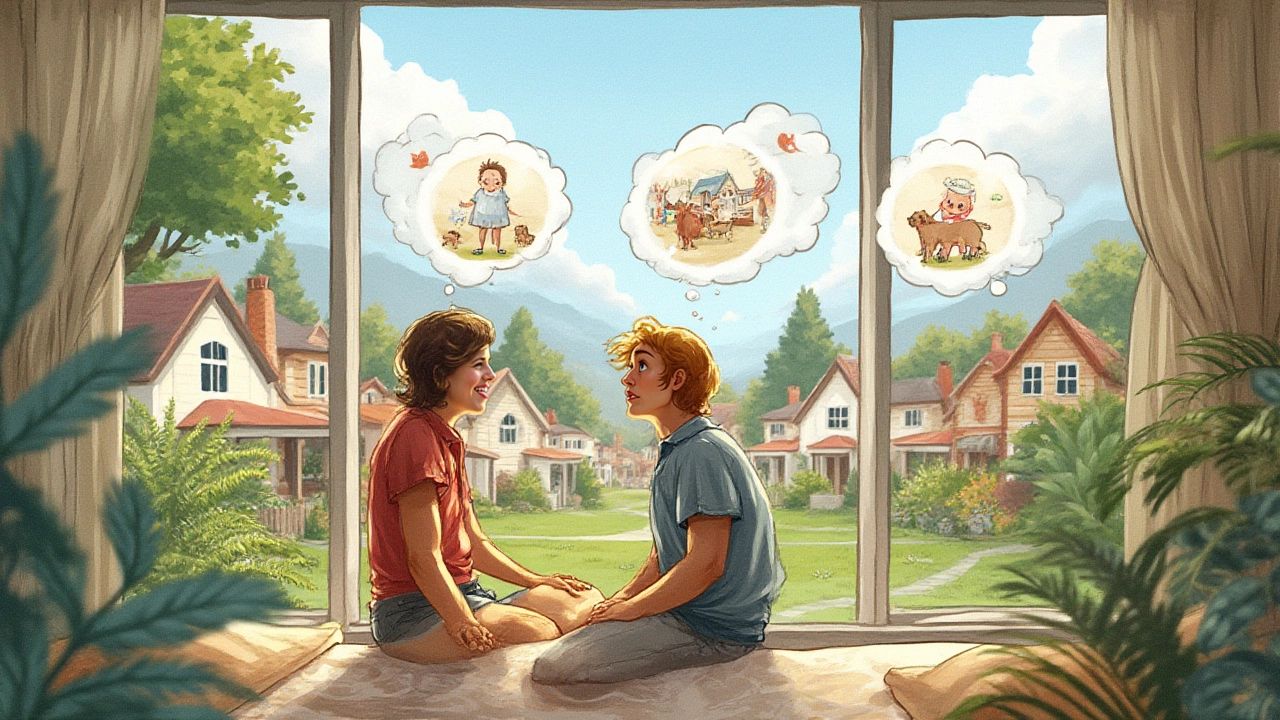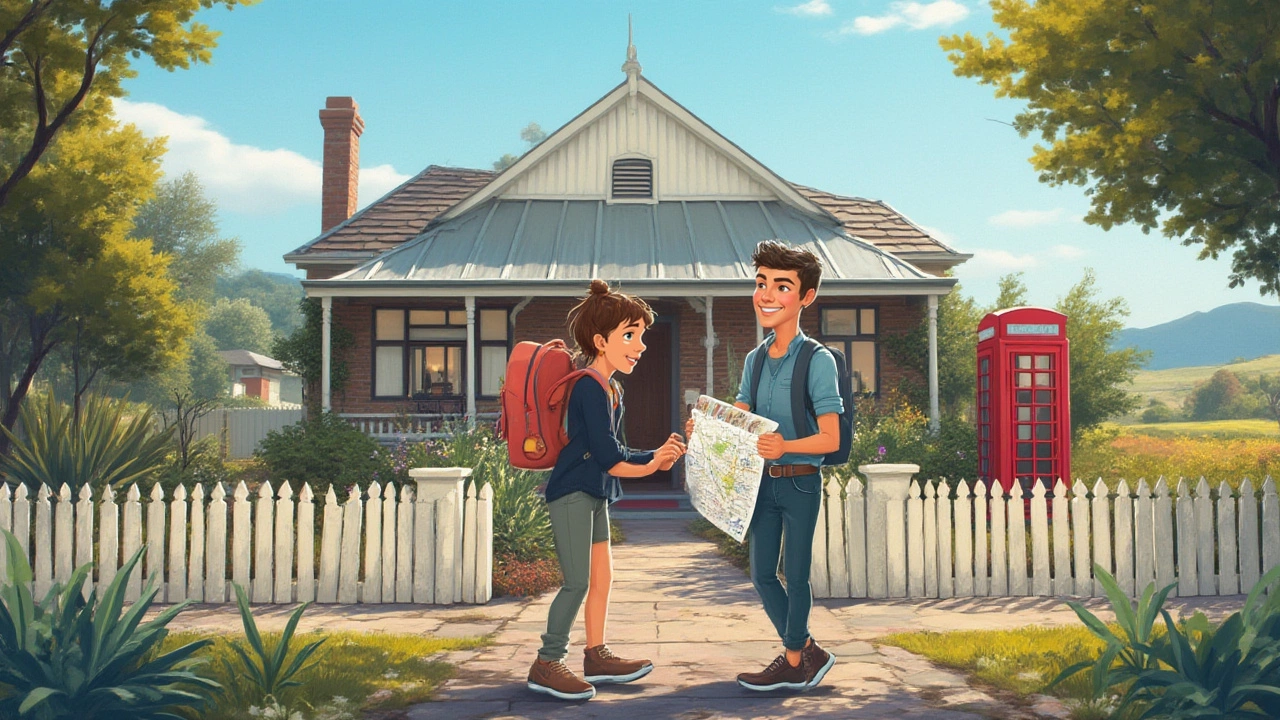Picture this: You’re scrolling through homes online in Auckland or Wellington, heart racing every time you hit ‘next,’ and one question keeps coming back—can you actually buy a house without a fat wad of cash ready for a deposit? And if yes, is it a snowball's chance in Kaikoura that it’s a smart idea? The dream of jumping straight into home ownership without saving for years is tempting—especially with house prices in Kiwi cities making most savings accounts look like pocket change. But, like those 'all inclusive' beach holidays that bury the good stuff in fine print, buying a house with no money down isn’t as simple as it sounds. There’s a reason banks advertise it in hushed tones and real estate agents won’t lead with it. If you’re even remotely thinking about this strategy—either because your savings flatlined, or you’re keen to keep your investments liquid—there’s a lot to unpack (and most of it’s not what they tell you at open homes).
How Zero Deposit Mortgages Work (and Why They’re Back in the Spotlight)
Just a few years ago, the words ‘zero deposit’ were whispered like urban myths at barbecues—lots of talk, not much proof. Fast forward to July 2025, and the conversation has changed, especially for first home buyers frustrated by sky-high rents or playing catch-up after a shaky job market. In New Zealand, lenders typically ask for at least a 20% deposit thanks to LVR (Loan to Value Ratio) rules, but there are exceptions. If you’re a first-timer, or if you qualify for certain government grants or schemes, there’s a much bigger door cracked open—if you know where to look.
Let’s break it down. A ‘zero deposit’ mortgage means you fund the entire purchase price with your loan. The catch? Not many banks are eager to throw that kind of money around without some reassurance. In 2025, you’ll usually need one of three things: 1) a guarantor (straight from your parents’ equity or assets), 2) leveraging your KiwiSaver to the max (if you’ve been diligently contributing), or 3) qualifying for niche products like the Kāinga Ora First Home Loan, where government backs up your risk with more lenient deposit requirements—sometimes as low as 5%.
Even if you see ‘no money down’ pitched loud and proud online, that almost always refers to using a family guarantee—meaning your parents’ home or savings are the safety net for the lender if things go pear-shaped. It’s a risky play for them, and you want to talk through absolutely all the what-ifs over a Sunday roast. Then there are the special government-backed loans—you might scrape through with nearly zero deposit if you tick every box for income, residency, home price caps, and KiwiSaver withdrawals. Still, true zero deposit is rare. According to the Reserve Bank, in 2024 only around 2% of home loans were written with deposits less than 5%, and even fewer were technically ‘zero deposit’.
Why the surge in interest lately? Blame sky high rents, FOMO, and a little help from rising house prices—homeowners are desperate to get on the ladder before things outpace them. But low-deposit lending might tighten again if house prices wobble or if banks worry about too many risky loans. As the Reserve Bank’s June 2025 statement warned:
“Borrowers should carefully consider the long-term risks of high-LVR lending, especially in an uncertain economic environment with volatile house prices.”
Translation: just because you can buy without a deposit, doesn’t mean you should—or that banks will offer these options if the risk profile shifts.
| Year | Average NZ House Price ($NZD) | Percentage of Mortgages with <5% Deposit |
|---|---|---|
| 2019 | 680,000 | 0.5% |
| 2022 | 825,000 | 1.2% |
| 2024 | 897,000 | 2.0% |
So, if you’re using a buy a house with no money down approach, you’re a rare breed—at least for now.

The Hidden Costs and Risks Lurking Behind ‘No Deposit’ Deals
If there’s one thing the headlines gloss over, it’s the price you’ll pay in the long run. When you step onto the ladder with no skin in the game, you’re immediately in the deep end with a bigger mortgage, bigger repayments, and a higher risk profile in the eyes of the bank. You also become way more vulnerable to market swings. Say the property market dips 5%. If you put nothing down, suddenly you owe more than your home’s worth—a scary spot called negative equity. The bank won’t care if you’re underwater, as long as the mortgage gets paid. But if you need to sell, say goodbye to walking out with cash in hand. Worse, you might have to cough up extra just to satisfy the loan balance.
Another detail? Higher lending risk means higher interest rates or extra fees (like a Low Equity Margin—those 0.25 to 1.5% extra interest charges banks tack on to keep themselves sweet). And your mortgage insurance bill? That’ll make your eyes water. If your lender asks for it, you’re footing the premium, not them. This piles onto your monthly payments—eating up what little buffer you had for life’s curveballs, like leaky roofs or job layoffs.
Stamp duty isn’t a worry in New Zealand (we’re lucky that way), but don’t forget legal fees, moving costs, and building inspections can still add up to over $10,000 before you collect your first set of keys. Even if you get in with zero deposit, you’ll need some savings—otherwise, you’ll be running a home on fumes, hoping the hot water cylinder holds out another year.
And there’s this emotional stuff too—living in a home where every dip in the market feels like a punch to the gut doesn’t make for good sleep. Suddenly, instead of house pride, you’re dealing with house anxiety. And if interest rates rise (as they did through much of 2024, with some fixed rates hitting 7.3%), your mortgage could go from “manageable” to “uh oh” in a few months, especially if you had zero head start in equity.
Here’s a quick table showing what an extra 1% on your interest can do, based on a $700,000 loan over 30 years:
| Interest Rate | Monthly Repayment ($NZD) |
|---|---|
| 6% | 4,198 |
| 7% | 4,655 |
| 8% | 5,128 |
That’s a raw extra $930 a month by the time you hit 8%—all for the privilege of having zero deposit at the start.
There’s also the effect on your financial resilience. If you have helpers (parents or guarantors), their assets are on the line. If the market tanks or you default, they may lose the security backing your loan. It’s not just dollars, it’s family relationships at risk. Is it worth tangling your folks’ retirement plans into your own move out of the rental cycle?
Sure, no-deposit deals can be the break you need. But most people overlook the real risk: if you’re living paycheck to paycheck, any hiccup—a new baby, job redundancy, or car breakdown—could tip you from proud homeowner to stressed seller. The pressure’s magnified if you’re in a volatile or rural market, where it might take months (not weeks) to get an offer if you need to exit. You don’t want to find out the exit door is stuck after you’ve already tripped the alarm.

When Does Buying With No Money Down Make Sense—and When’s It Best to Wait?
Alright, so when is it actually smart to chase down that no-deposit holy grail? The answer’s like a good coffee blend: it depends on your strengths and blend of risk tolerance. If you’re young, expect your income to rise fast, have a fallback plan (like a flatmate, or a family safety net), and can stomach the rollercoaster of interest rate hikes—a no-deposit buy could be your entry point. You’re betting house prices will keep rising, and that you’ll build your savings faster as a homeowner than watching rent bills eat your paycheck. That worked wonders for early buyers post-2012, when values soared. But, as property analysts like Shamubeel Eaqub said in a 2024 Q&A: "Not every market will repeat the boom years. For every winner, there’s someone who bought at a peak and spent years playing catch up.”
If you have a secure job in a growing industry (think health, tech, or engineering), and your new home is in a city where population keeps climbing (like Auckland, Hamilton, or Tauranga), the odds are better you’ll stay afloat—even if values dip for a while. But, if you’re buying in a small town where the only employer’s threatening cutbacks, or you’re relying on gig work, the risk climbs. Same goes if your household budget is tight before you even sign mortgage papers. Interest rates can move shockingly fast, and inflation’s no joke. Even an extra $100 a week in food and petrol could throw your budget off-kilter.
Don’t forget, banks have their own stress tests—they’ll measure your loan against worst-case scenarios, often assuming rates spike by 2% or more, or that your job situation gets bumpy. They’ll want proof you can absorb these shocks, or the loan won’t go through. That’s not them being mean—it’s them betting on your ability to keep up. The most prepared buyers come in with a spreadsheet budgeting for bills, insurance, rates, and sudden interest hikes—and factoring in backup (like a few months’ expenses in an emergency fund). Miss this step and you’re rolling dice with your home—and your future.
Some smart tweaks? Consider these if you want to go the no-deposit route:
- Combine all the grants you’re eligible for—like the Kāinga Ora First Home Grant and Home Start Grant—to whittle down what you need upfront.
- See if your KiwiSaver can bridge the gap. Some have doubled their savings in just five years of disciplined working and employer top-ups (especially if you joined early in your twenties).
- If your parents co-sign as guarantors, work on a plan to release them once you hit 20% equity—many banks allow this if the home’s value rises or you repay aggressively in the first few years.
- Buy in an up-and-coming suburb or region and ride the growth. Some buyers in Hamilton and Palmerston North saw values lift 15-20% between 2019 and 2023—that’s your equity built by holding on, even if you started at zero deposit.
- Switch to principal + interest repayment as soon as possible—this pays down your loan faster and speeds up hitting that magical 20% equity mark (where fees and high rates drop off).
- Seriously budget for the ‘oh no’ costs—don’t empty your rainy-day fund just to settle. You’ll need a buffer, especially in the first two years when every repair is your problem, not the landlord’s.
At the end of the day, buying a house with no money down is possible but not a free ride. If you can accept the risks, count on your income rising, and have a backup plan, then the opportunity might be worth the leap. Otherwise, a year or two of living lean while you build a deposit could save you a lot of sleepless nights and give you way more options when you find The One.
Keep your wits about you, question every number the bank throws, and get advice from someone who’s been around the block—ideally, not just your property-obsessed uncle at the barbecue. In New Zealand, where house prices soar and drop in cycles, owning the dream home is about playing smart, not just playing fast.
